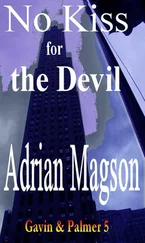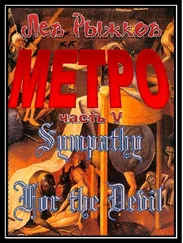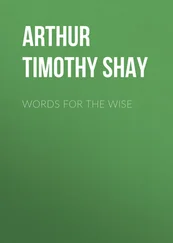“Welcome, my children,” said the dark figure, “to the communion of your race. Ye have found thus young your nature and your destiny. My children, look behind you!”
They turned; and flashing forth, as it were, in a sheet of flame, the fiend worshippers were seen; the smile of welcome gleamed darkly on every visage.
“There,” resumed the sable form, “are all whom ye have reverenced from youth. Ye deemed them holier than yourselves, and shrank from your own sin, contrasting it with their lives of righteousness and prayerful aspirations heavenward. Yet here are they all in my worshipping assembly. This night it shall be granted you to know their secret deeds: how hoary-bearded elders of the church have whispered wanton words to the young maids of their households; how many a woman, eager for widows’ weeds, has given her husband a drink at bedtime and let him sleep his last sleep in her bosom; how beardless youths have made haste to inherit their fathers’ wealth; and how fair damsels-blush not, sweet ones-have dug little graves in the garden, and bidden me, the sole guest to an infant’s funeral. By the sympathy of your human hearts for sin ye shall scent out all the places-whether in church, bedchamber, street, field, or forest-where crime has been committed, and shall exult to behold the whole earth one stain of guilt, one mighty blood spot. Far more than this. It shall be yours to penetrate, in every bosom, the deep mystery of sin, the fountain of all wicked arts, and which inexhaustibly supplies more evil impulses than human power-than my power at its utmost-can make manifest in deeds. And now, my children, look upon each other.”
They did so; and, by the blaze of the hell-kindled torches, the wretched man beheld his Faith, and the wife her husband, trembling before that unhallowed altar.
“Lo, there ye stand, my children,” said the figure, in a deep and solemn tone, almost sad with its despairing awfulness, as if his once-angelic nature could yet mourn for our miserable race. “Depending upon one another’s hearts, ye had still hoped that virtue were not all a dream. Now are ye undeceived. Evil is the nature of mankind. Evil must be your only happiness. Welcome again, my children, to the communion of your race.”
“Welcome,” repeated the fiend worshippers, in one cry of despair and triumph.
And there they stood, the only pair, as it seemed, who were yet hesitating on the verge of wickedness in this dark world. A basin was hollowed, naturally, in the rock. Did it contain water, reddened by the lurid light? or was it blood? or, perchance, a liquid flame? Herein did the shape of evil dip his hand and prepare to lay the mark of baptism upon their foreheads, that they might be partakers of the mystery of sin, more conscious of the secret guilt of others, both in deed and thought, than they could now be of their own. The husband cast one look at his pale wife, and Faith at him. What polluted wretches would the next glance show them to each other, shuddering alike at what they disclosed and what they saw!
“Faith! Faith!” cried the husband, “look up to heaven, and resist the wicked one.”
Whether Faith obeyed he knew not. Hardly had he spoken when he found himself amid calm night and solitude, listening to a roar of the wind which died heavily away through the forest. He staggered against the rock, and felt it chill and damp; while a hanging twig, that had been all on fire, besprinkled his cheek with the coldest dew.
The next morning young Goodman Brown came slowly into the street of Salem village, staring around him like a bewildered man. The good old minister was taking a walk along the graveyard to get an appetite for breakfast and meditate his sermon, and bestowed a blessing, as he passed, on Goodman Brown. He shrank from the venerable saint as if to avoid an anathema. Old Deacon Gookin was at domestic worship, and the holy words of his prayer were heard through the open window. “What God doth the wizard pray to?” quoth Goodman Brown. Goody Cloyse, that excellent old Christian, stood in the early sunshine at her own lattice, catechizing a little girl who had brought her a pint of morning’s milk. Goodman Brown snatched away the child as from the grasp of the fiend himself. Turning the corner by the meeting-house, he spied the head of Faith, with the pink ribbons, gazing anxiously forth, and bursting into such joy at sight of him that she skipped along the street and almost kissed her husband before the whole village. But Goodman Brown looked sternly and sadly into her face, and passed on without a greeting.
Had Goodman Brown fallen asleep in the forest and only dreamed a wild dream of a witch-meeting?
Be it so if you will; but, alas! it was a dream of evil omen for young Goodman Brown. A stern, a sad, a darkly meditative, a distrustful, if not a desperate man did he become from the night of that fearful dream. On the Sabbath day, when the congregation were singing a holy psalm, he could not listen because an anthem of sin rushed loudly upon his ear and drowned all the blessed strain. When the minister spoke from the pulpit with power and fervid eloquence, and, with his hand on the open Bible, of the sacred truths of our religion, and of saint-like lives and triumphant deaths, and of future bliss or misery unutterable, then did Goodman Brown turn pale, dreading lest the roof should thunder down upon the gray blasphemer and his hearers. Often, waking suddenly at midnight, he shrank from the bosom of Faith; and at morning or eventide, when the family knelt down at prayer, he scowled and muttered to himself, and gazed sternly at his wife, and turned away. And when he had lived long, and was borne to his grave a hoary corpse, followed by Faith, an aged woman, and children and grandchildren, a goodly procession, besides neighbors not a few, they carved no hopeful verse upon his tombstone, for his dying hour was gloom.
The Man in the Black Suit by Stephen King
I am now a very old man and this is something which happened to me when I was very young-only nine years old. It was 1914, the summer after my brother Dan died in the west field and three years before America got into World War I. I’ve never told anyone about what happened at the fork in the stream that day, and I never will… at least not with my mouth. I’ve decided to write it down, though, in this book which I will leave on the table beside my bed. I can’t write long, because my hands shake so these days and I have next to no strength, but I don’t think it will take long.
Later, someone may find what I have written. That seems likely to me, as it is pretty much human nature to look in a book marked DIARY after its owner has passed along. So yes-my words will probably be read. A better question is whether or not anyone will believe them. Almost certainly not, but that doesn’t matter. It’s not belief I’m interested in but freedom. Writing can give that, I’ve found. For twenty years I wrote a column called “Long Ago and Far Away” for the Castle Rock Call, and I know that sometimes it works that way-what you write down sometimes leaves you forever, like old photographs left in the bright sun, fading to nothing but white.
I pray for that sort of release.
A man in his nineties should be well past the terrors of childhood, but as my infirmities slowly creep up on me, like waves licking closer and closer to some indifferently built castle of sand, that terrible face grows clearer and clearer in my mind’s eye. It glows like a dark star in the constellations of my childhood. What I might have done yesterday, who I might have seen here in my room at the nursing home, what I might have said to them or they to me… those things are gone, but the face of the man in the black suit grows ever clearer, ever closer, and I remember every word he said. I don’t want to think of him but I can’t help it, and sometimes at night my old heart beats so hard and so fast I think it will tear itself right clear of my chest. So I uncap my fountain pen and force my trembling old hand to write this pointless anecdote in the diary one of my great grandchildren-I can’t remember her name for sure, at least not right now, but I know it starts with an S-gave to me last Christmas, and which I have never written in until now. Now I will write in it. I will write the story of how I met the man in the black suit on the bank of Castle Stream one afternoon in the summer of 1914.
Читать дальше












